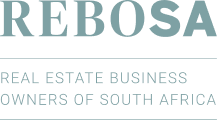Prices expected to maintain growth, says Absa
Category Market News
Building costs are not rising as fast as they were a year ago, but it is still more than 30% more expensive to buy a newly-built house than a similar pre-owned house, according to the latest Absa Housing Review.
Consequently, the strong demand currently evident in the real estate market can be expected to remain focused on pre-owned homes this year, and to exert upward pressure on prices in this sector.
As it is, the Absa report shows, real (after inflation) growth was experienced in every housing category last year and, barring economic disaster, can be expected to continue this year and next, although it is unlikely to exceed single digits.
The Absa figures show that the average price for pre-owned homes in the affordable category (up to 79sqm big and priced at up to R545 000) grew by 1,6% in real terms in the last quarter of 2014, while the average price of small homes (80sqm to 140sqm) grew by 3,5%.
Medium-sized homes (140sqm to 220sqm) recorded a fourth quarter average price increase of 1,3% in real terms, and the average price of large homes (220sqm to 400sqm) grew by 1,6%, but it was luxury homes (priced at 4m to R14,6m) that performed the best, with an average 9,7% real-term increase in price.
Absa says it also expects to see an increase in the rate of growth in outstanding mortgage balances this year, thanks to improvements in economic growth, employment and household income, consumer credit-risk profiles and the risk appetite of the banks.
Interest rates, it says, are not expected to rise beyond 9,5% this year, and real household disposable income is expected to rise as incomes increase and debt levels subside. The nominal wage increase in 2014 was 8,1%, which was ahead of the average inflation rate of 6,1%. According to the Bureau for Economic Research, the consumer financial vulnerability index (CFVI) shifted from 50,4% to 51,4% in the third quarter of last year, which means that consumers are less financially vulnerable now than they were a year ago.
Breaking the performance of the housing market down regionally, the Absa report reveals that house prices in the Free State achieved the highest rate of real growth last year (5,5%), which was no doubt helped by a whopping 11,3% rate of real growth in prices in the Mangaung metro.
Real house price growth reached 5,4% in the Western Cape, mostly due to an real increase of 6,8% in the Cape Town metro; while prices across Gauteng grew 3,5%, boosted by increases of 5,2% in the Tshwane metro and 4,2% in Greater Johannesburg.
The Buffalo and Nelson Mandela Bay metros did not fare as well, however, and this is reflected in a real-term decline of 1% in Eastern Cape home values.
Article Sourced on Betterlife Home Loans Blog
Author: Absa







